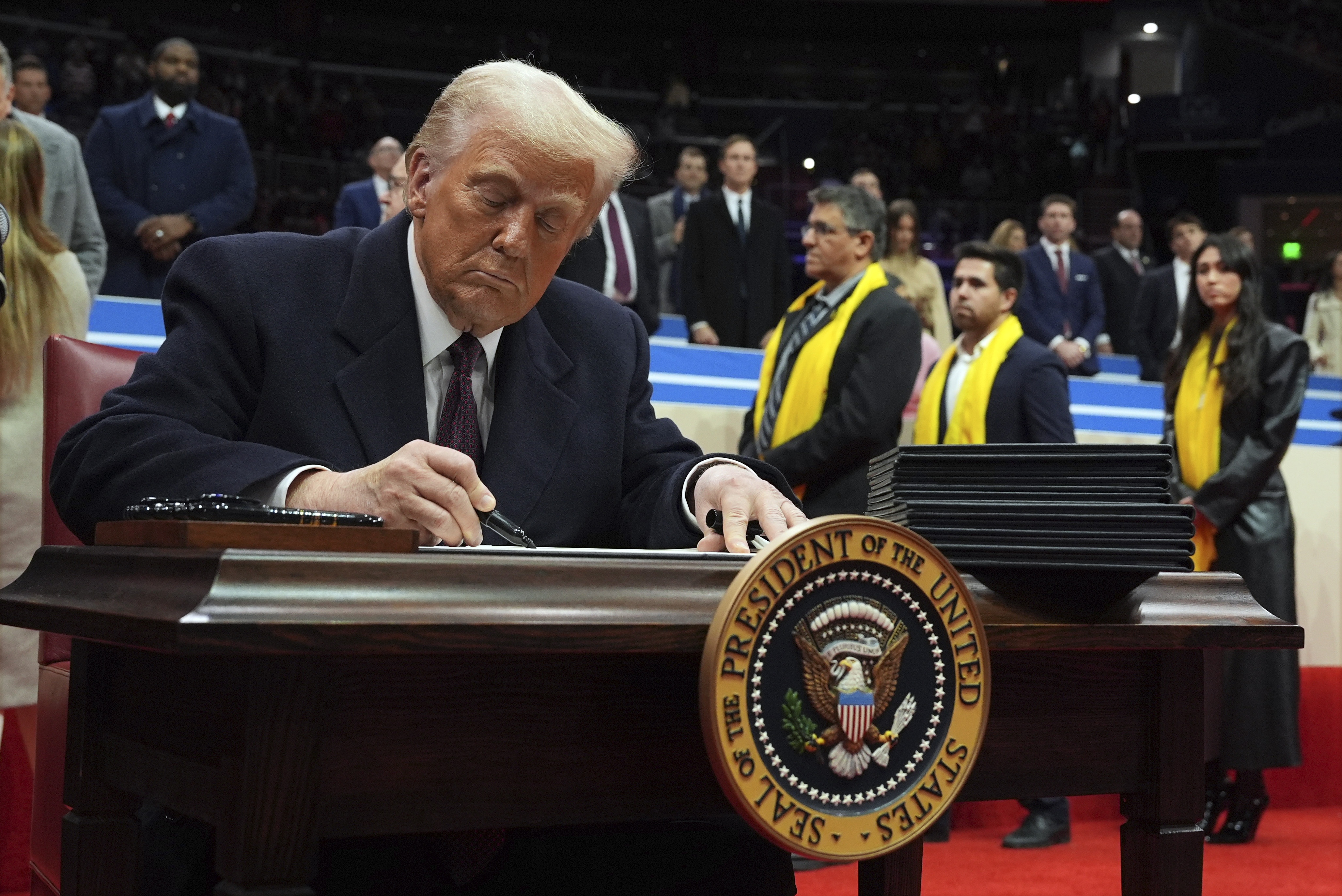
U.S. Wmbassy in Berlin, Germany.
Thousands of overseas American diplomats are at risk of a sharp pay cut at the beginning of October unless Congress passes a legislative fix in the coming weeks.
Lawmakers are scrambling to push for a solution in a short-term bill to avoid a government shutdown on Oct. 1, with the diplomats' dilemma raising the stakes for talks on Capitol Hill to fund the government.
Watch NBC6 free wherever you are
Sen. Chris Coons, D-Del., who sits on the Foreign Relations Committee, said it’s “an urgent issue” that must be fixed immediately in the government funding bill (known as a continuing resolution, or CR), which is again mired in a partisan fight on Capitol Hill.
“It would impact virtually every foreign service officer deployed overseas. And a 22% reduction in their pay would be a needless and demoralizing harm. I look forward to working hard to make sure that doesn’t happen,” Coons told NBC News. “This should be easily resolvable in the CR.”
Get local news you need to know to start your day with NBC 6's News Headlines newsletter.
The pay cuts are a result of the impending lapse in the Overseas Comparability Pay (OCP) system, which helps bring the salaries of overseas foreign affairs personnel closer to comparable roles in the private sector in Washington, D.C.
The State Department informed the American Foreign Service Association, or AFSA, the union representing these employees, earlier this summer that the OCP authorization would expire on Oct. 1 unless an extension was passed by Congress, according to a union representative.
Senate Foreign Relations Committee Chair Ben Cardin, D-Md., said in an interview that he’s also pushing for a fix in the continuing resolution before the Sept. 30 deadline.
U.S. & World
“We’re asking for it to be in a CR. We have it also in the NDAA. So we’re trying to get it through the finish line,” Cardin said.
The NDAA — the National Defense Authorization Act — doesn’t need to pass until the end of 2024, three months after the OCP’s authorization expires.
AFSA estimates that employees could see pay cuts of about 22%, or an average of $21,000, affecting more than 10,000 federal employees across six foreign affairs agencies, including the State Department and the U.S. Agency for International Development.
Since the summer, there’s been a behind-the-scenes push to work up a legislative remedy to extend what a State Department spokesperson calls a “mission-critical authorization.” AFSA has sent letters to Democratic and Republican leaders in the House and Senate, so far receiving only a response from the staff for House Minority Leader Hakeem Jeffries, D-N.Y., the union said.
“The Department of State continues to work with Congress on the urgent need for an extension,” a State Department spokesperson said in a statement.
The pay snafu, first reported by Politico, is the unintended consequence of a funding structure that requires action from Congress. For now, the government funding measure is seen as the the only must-pass bill before the Nov. 5 election.
Lawmakers have yet to come to an agreement on government funding with less than three weeks to the deadline. House Speaker Mike Johnson, R-La., is moving forward with a bill to tie a continuing resolution to Donald Trump-backed legislation requiring proof of citizenship when registering to vote, a plan that lacks support among Democrats and some of his own party.
With the fate of their wages tied to the funding fight, American diplomats could be left in the lurch.
“Our members’ dedication to serving the United States abroad is invaluable,” AFSA President Tom Yazdgerdi said. “They serve in some of the most dangerous and difficult places on earth and we are committed to ensuring they receive the support and compensation they deserve.”
This story first appeared on NBCNews.com. More from NBC News:



